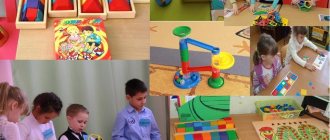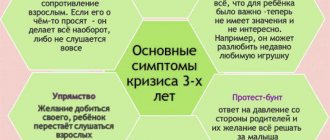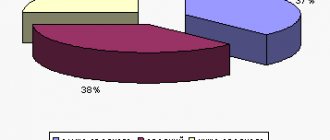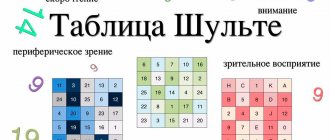Jean Piaget believed that children take an active part in the learning process, acting like little scientists in the process of conducting experiments, observing and learning about the world. As children interact with the world around them, they constantly add new knowledge to existing knowledge and adapt their ideas to new information.
Psychologist Jean Piaget's theory of cognitive development suggests that children go through four different stages of mental development:
Illustration by Joshua Seong, Verywell
Stage 1: Sensorimotor Intelligence (birth to 2 years of age)
Stage 2: Preoperational Conceptions (2 to 7 years)
Stage 3: Specific Operations (7 to 11 years)
Stage 4: Formal Operations (12 years and older)
How did Piaget develop the theory?
Piaget was born in Switzerland in the late 1800s. He published his first scientific work when he was only 11 years old. His interest in children's intellectual development began when he worked as an assistant to Alfred Binet and Theodore Simon, creators of the famous IQ test.
The psychologist's interest in cognitive development began when he observed his own children. These observations strengthened his nascent hypothesis that a child's mind is not just a small version of an adult's mind.
Piaget was one of the first to determine that the thinking of children differs from the thinking of adults. Until this point, children were treated as smaller versions of adults.
Jean Piaget put forward the theory that intelligence is something that grows and develops in stages. Older children don't just think faster than younger children. There are numerous differences between the thinking of younger and older children.
Based on his observations, the psychologist came to the conclusion that children are no less smart than adults, they just think differently.
So simple! Only a genius could think of this!
This is exactly what Albert Einstein called the discovery of Jean Piaget
Cognitive development involves changes in a child's intellectual process and abilities. Development theory includes four stages:
Important stages of a child's cognitive development
Many children feel frustrated with learning, finding it too difficult, simply because they do not have the cognitive skills needed to process information. That is, those specific basic skills that ensure successful learning. Extra workload at school, homework, or special attention to the lack of these skills increases their frustration and further increases their reading problems and difficulties in acquiring new knowledge. Most schools do not provide enough money or time for the individualized instruction needed for students with weak cognitive skills. In addition, teachers have to read the curriculum at a pace that is difficult for these children to maintain. They cannot keep up with their peers and have difficulty learning, falling further and further behind, often becoming a lifelong problem. Cognitive stages of child development - stages of learning Learning is a complex process that develops in stages. It relies on innate abilities, inherited and genetically encoded at birth. But few of us learn with the maximum efficiency that is genetically determined. This is why study and practice improve learning ability and productivity in most people. The development of our learning abilities progresses through the stages of improving sensory and motor skills, then cognitive skills, and finally leading to the ability to absorb formal instructions. Deficiency in any of the stages can lead to problems in subsequent dependent stages. Schools, government programs, and special education focus on academic instruction (capstone). Unfortunately, they rarely acknowledge that not all children have adequately developed cognitive skills necessary to effectively process and understand information provided through academic instruction. Without the development of appropriate cognitive skills, granular academic instruction and tutoring do not lead to improved learning ability, and all efforts to help a student learn are wasted. A closer look at the stages of learning reveals the importance of developing cognitive skills.
- Innate abilities. Innate human abilities are the basis of the learning process. They represent the genetically determined capabilities and limitations that we have at birth and that we inherit from our parents and ancestors. Mozart certainly had more innate musical ability than most of us, but with practice, most of us can improve our musical abilities too. The upper limits of our capabilities are determined by our innate abilities, but how close we get to these upper limits is determined by other elements necessary for learning.
- Sensory and motor skills. Sensory and motor skills develop from our innate abilities. Sensory skills include vision, hearing and touch. They are responsible for receiving information. Motor skills refer to muscles and movement and include the ability to crawl, walk, run, write and speak. Motor skills express and display information received and processed by our senses. Both sensory and motor skills are partly determined by the genetic code and partly acquired through repeated interaction with the environment. For almost all people, these skills can be improved with proper targeted practice. They are the basis for playing sports and playing musical instruments, physical therapy, and other similar efforts to enhance performance.
- Cognitive skills - cognitive (cognitive) abilities allow us to process the sensory information that we receive. They include our ability to analyze, evaluate, store information, recall experiences, compare and determine actions. Although some cognitive skills are innate, most of them are learned. If their development does not occur naturally, cognitive impairment is formed, which reduces learning potential and is difficult to correct without special and appropriate (medical) intervention. Just like sensory and motor skills, cognitive skills can also be trained and improved with the right training. Cognitive changes can be observed when trauma affects a specific area of the brain. The right therapy can often “repair” a patient’s brain, and, accordingly, restore or improve cognitive function. This also applies to students. Weak cognitive skills can be strengthened and normal cognitive skills can be improved, thereby increasing the ease and productivity of the learning process.
- Perception of instructions. Formal acceptance and following of instructions is the last and most heterogeneous level of learning. It includes the study of academic subjects such as algebra, reading, writing - those that cannot be mastered either intuitively or independently (for the most part). These subjects are learned through formal education and learning these subjects successfully and easily depends on the basic cognitive skills of an individual. The knowledge base in each subject can be expanded, but without the proper foundation of effective cognitive skills already in place, performing well can be a frustrating and difficult task.
Cognitive As a person matures and academic tasks become more complex, it is important that basic problem-solving skills are present and functioning properly. Strong cognitive skills are the key to high academic achievement. Without them, a person with a learning or reading disability cannot reach their full potential. If your child is having difficulty learning or reading, it may be due to underdevelopment of one or more basic cognitive skills. If this is indeed the reason, it must be corrected with the help of special individual training programs aimed at overcoming “weak points” specific to each individual child, which means that the information from the school curriculum will be absorbed much faster and better as a result.
Related links:
- How to harmoniously develop a child's brain
- Brain training exercises for children
- How to teach kids the basics of scientific knowledge
- Is early academic learning dangerous for children?
- Fun ways to develop fine motor skills
- Developing Pre-writing Skills in Toddlers
- Pre-Reading Skills for Toddlers
- Practical tasks for cognitive development
- More articles on child development
- More articles on teaching children
Important Concepts of Jean Piaget
To better understand some of the things that happen during cognitive development, it is important to consider some of the ideas and concepts introduced by Jean Piaget. The following are concepts that influence how children learn and grow:
Model
Models are categories of knowledge that help us interpret and understand the world.
The model includes the category of knowledge and the process of obtaining it. As experience is gained, this new information is used to modify, supplement, or change pre-existing models.
How might the model change? For example, the child saw and touched only small dogs. Now he is sure that they are all the same size and have four legs. The child has already formed a model about this animal. When a child encounters a huge dog, he will change his previously existing pattern of perception.
Assimilation
The process of introducing new information into our existing models is called assimilation. This process is subjective because people tend to modify experiences and information to fit their prior beliefs.
Seeing a dog and calling it “dog” is the assimilation of the animal into the child’s “dog” model.
Device
Another part of adaptation involves changing our existing models in light of new information. This is a process known as adaptation.
Adaptation involves changing existing models. Typically this change occurs as a result of new information or new experiences. New models may also be developed during this process.
Balancing
Jean Piaget believed that all children try to achieve a balance between assimilation and adaptation. This is achieved through balancing. It is important to maintain a balance between applying prior knowledge (assimilation) and changing behavior to accommodate new knowledge (accommodation) throughout all stages of cognitive development. Balancing helps explain how children can move from one stage of thinking to another.
Piaget's theory of cognitive development has helped expand the understanding of children's intellectual growth. She also emphasized that children are not just passive recipients of knowledge. On the contrary, children constantly explore and experiment, building their understanding of how this magical world works.
Translation of the article: Kendra Cherry
Pre-operational stage (from 2 to 6 years)
The second stage generally corresponds to preschool age (it must be taken into account that the age indicated in this theory is approximate). It was called pre-operative, because. At this stage, children do not understand operations - logical manipulations, and do not know how to think logically. Operations refer to procedures such as division, union and other transformations that require logical thinking. In other words, a child at this stage, especially at its beginning, is not able to use logical categories and operations: classify, compare, evaluate, measure, etc.
However, at this stage, a very important feature is observed - children master speech and begin to actively use symbolic thinking. Those. they use words and symbols to represent objects, groups of objects, images and ideas, and actively use imagination and symbolic play. Thus, cubes can become kingdom subjects or buildings, and a child’s hands can become airplane wings. Such play and the ability to “pretend” is actually an important cognitive achievement—a degree of abstraction not available to great apes and other animals.
Jean Piaget believed that children at this stage are unable to maintain attention on more than one aspect of a situation or characteristic, and in addition, children's logic is based on personal experience rather than generally accepted rules and laws. Thus, at the age of 3-4 years, children are not able to understand the concept of conservation of matter. The principle of conservation is the understanding that the amount of a substance will remain the same even if its shape changes. For example, if you pour water from a short and wide glass into a tall and narrow one, there will be the same amount of water in it. And if you roll out a ball of plasticine into an oblong sausage, the amount of plasticine will not change. Such operations become available to children only at the next stage of cognitive development.
To see what the logic of children at an early stage of the pre-operational stage of development (who have not yet mastered the principle of conservation of mass and quantity) looks like in life, watch this video. (https://www.youtube.com/watch?v=ZDNi4z5tdqU)
Another distinctive feature of this stage is children's egocentrism. In this context, this means that a child up to the age of approximately 3 years perceives the world as an extension of himself, exactly as he sees it, without realizing and often with difficulty accepting points of view that differ from his own. At this stage, it is natural for children to believe that everyone sees and perceives the world exactly the same as they do, and has the same feelings, thoughts, preferences and desires.
Between about 3 and 5 years of age, children begin to realize that other people have their own points of view, feelings and thoughts, and they perceive the world differently, in their own way. This phenomenon is called the model of the human psyche (or theory of mind, in English).
The pre-operational stage is replaced by the stage of concrete operations, at which children demonstrate a greater ability for logical thinking. We will consider this, as well as the fourth stage - formal operations, in detail next time, as well as valuable practical considerations and recommendations for parents.
In the meantime, we invite you to our program “Cognitive Science. Development of thinking." This online training will be useful to all those who want to learn to reason logically and consistently, quickly make effective decisions and find innovative approaches to difficult problems.
Good luck!
We also recommend reading:
- Storytelling
- Cognitive sphere of personality
- Piaget's theory of cognitive development
- A selection of courses for children and parents
- How to teach a child to read: rules, tips and tricks
- Cognitive development. Part 2
- IQ: what is it and how is it measured?
- Factors in a child’s intellectual development
- Conceptual thinking: by stages of cognition
- Genetic psychology
- Theories of thinking
Key words:1Cognitive science
7.1. Prerequisites for the development of cognitive direction
Cognitive theories of development originate from the philosophical theory of knowledge.
Intersecting with biology, the theory of knowledge is associated with solving the problem of adapting an individual to the surrounding social and subject environment. The main goal of this direction is to find out in what sequence the cognitive structures that ensure adaptation are deployed. The German scientist E. Meimann proposed a periodization of mental development, the criterion of which is the stages of intellectual development:
- Stage of fantastic synthesis (from birth to 7 years).
Children generalize individual sensations without system and logic, so the concepts they receive are far from reality. - Analysis stage (7 – 12 years).
It is not integration that is leading, but differentiation, i.e. decomposition of general concepts, knowledge that the child tries to understand by dividing the concept into parts and forming an adequate idea of these parts. At this stage, it is possible to begin systematic education of children. - Stage of rational synthesis (12 – 16 years).
Operational thinking is formed, it becomes possible to integrate individual concepts that were learned at the previous stage and obtain scientific ideas about these parts.
E. Claparède identified the following stages in mental development:
- From birth to 2 years, children’s interest in the external side of things predominates, and therefore intellectual development is associated mainly with the development of perception.
- From 2 to 3 years - children develop speech, so their cognitive interests are concentrated on words and their meanings.
- From 3 to 7 years – intellectual development itself begins, i.e. development of thinking, with children having common mental interests predominating.
- From 7 to 12 years – the individual characteristics and inclinations of children begin to appear, because their intellectual development is associated with the formation of special interests.










